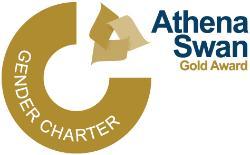Quantitative findings from IHW Athena Swan survey on working from home
Published: 14 March 2018
There was excellent engagement with our recent survey, which looked at experiences of and feelings about working remotely, and the research team is now pleased to report on some initial findings
Thanks to everyone who responded to our recent survey into working from home.

We were particularly pleased with the detailed responses and explanations you were able to provide. These give a real insight into how we all feel about the recent changes to our working practices. Our small research team (Janet Bouttell, Rebecca Robinson, Nicola McMeekin and Cindy Gray) is currently working on analysing the qualitative responses to the survey and the interviews, but wanted to share some initial quantitative findings (based on descriptive analysis only at this stage).
- 166 responses of which 79% were female, 19% male, 2% prefer not to say
- 28% of responses from staff aged 35 years and under, 44% 36-50 years, 26% 51 years and over, 2% prefer not say.
- 44% of respondents had adapted well or very well to new ways of working: however, a significant minority (21%) said they had not adapted well.
- 41% of respondents reported a negative impact on work/home life balance.
- 37% feel less productive than before lockdown.
- 35% feel their mental health has been negatively impacted
- 74% feel well supported by the institute and their unit, with 9% feeling poorly supported.
- 82% feel well informed about university business, with 7% feeling poorly informed.
Our initial results suggest that women and older staff are reporting more positive outcomes overall. However, the results reveal some people are not adapting well to current working conditions and feeling a negative impact on their work/life balance, productivity and mental health.
These important findings have been shared with IHW management who are considering how to improve working conditions for all. We will share further results and associated actions as the analysis proceeds.
Thanks again for your participation in this important work.
Janet Bouttell on behalf of the research team
First published: 14 March 2018
<< August 2020


